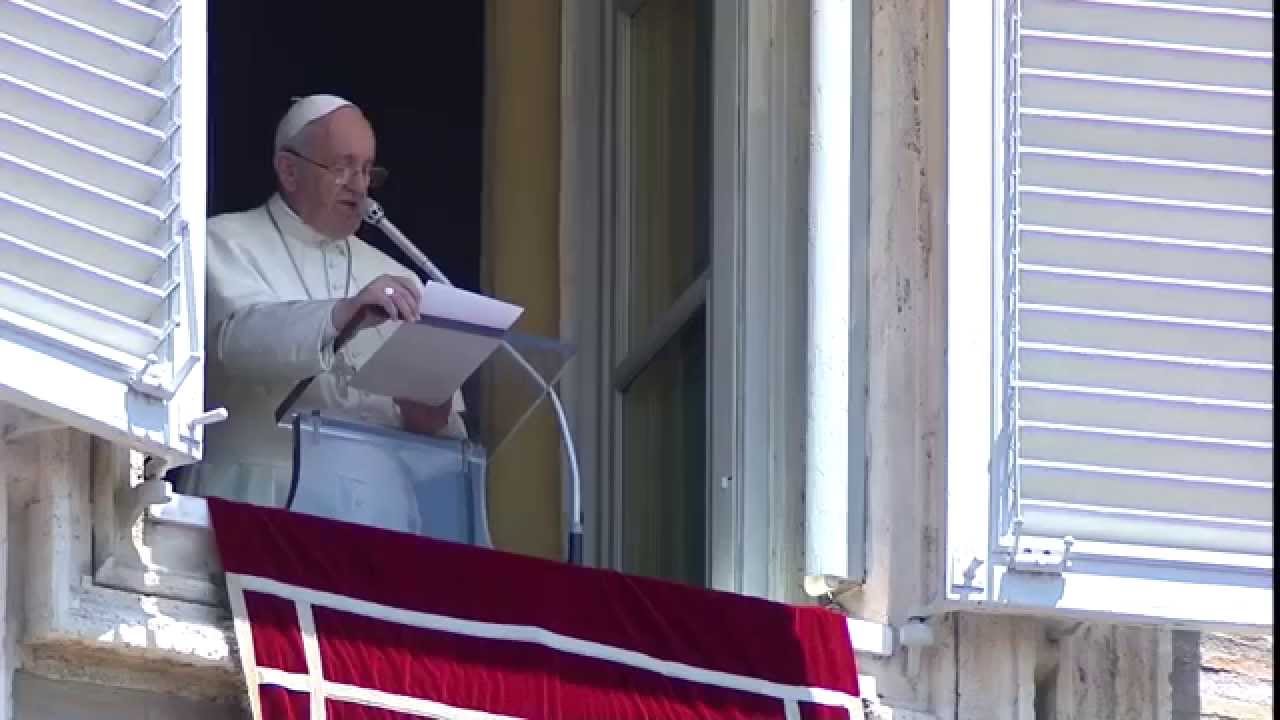On the Solemnity of the Most Holy Trinity, Pope Francis reflected on the “mystery of the identity of God” during the midday recitation of the Angelus in St Peter’s Square.
The Holy Father took as his starting point the greeting of St Paul in his Second Letter to the Corinthians: “The grace of the Lord Jesus Christ, the love of God, and the fellowship of the Holy Spirit be with all of you.” This greeting, he said, was inspired by Paul’s personal experience of the love of God. The Apostle encouraged the Christian community, despite its human limitations, “to become a reflection of the communion of the Trinity, of its goodness and beauty.” But, the Pope said, this comes about only through the experience of the mercy and forgiveness of God.
This was the experience of the Jewish people during the Exodus. When they broke the covenant, God came to Moses in the cloud to renew the pact, and revealed His own proper Name and its significance: “the Lord, a merciful and gracious God, slow to anger and rich in kindness and fidelity.” The Pope said this name shows us that “God is not distant and closed in on Himself”; rather, He is “Life which wishes to communicate itself; He is openness; He is Love which redeems man’s infidelity.”
The revelation of God’s Name in the Old Testament, he continued, is fulfilled in the New, in the words of Christ and His mission of salvation. Jesus, he said, “has shown us the face of God, One in substance and Triune in Persons; God is all and only Love, in a subsisting relationship that creates, redeems, and sanctifies all: Father, Son, and Holy Spirit.”
This is the context of the scene from the Gospel where Christ speaks with Nicodemus. Although Nicodemus was an important figure in the community, he never stopped seeking God. But speaking with Jesus, he comes to know that God has already sought him; that God waits for him, that God loves him personally. Here we find the famous words of Christ: “God so loved the world that He gave His only Son, so that everyone who believes in Him might not perish but might have eternal life.” This eternal life is none other than “the immeasurable and gratuitous love of the Father that Jesus gave on the Cross, offering His life for our salvation.”
Pope Francis concluded his reflection with the prayer that the Virgin Mary might “help us to enter ever more, with our whole selves, into the trinitarian Communion, to live and bear witness to the love that gives sense to our existence.”
ENDS


